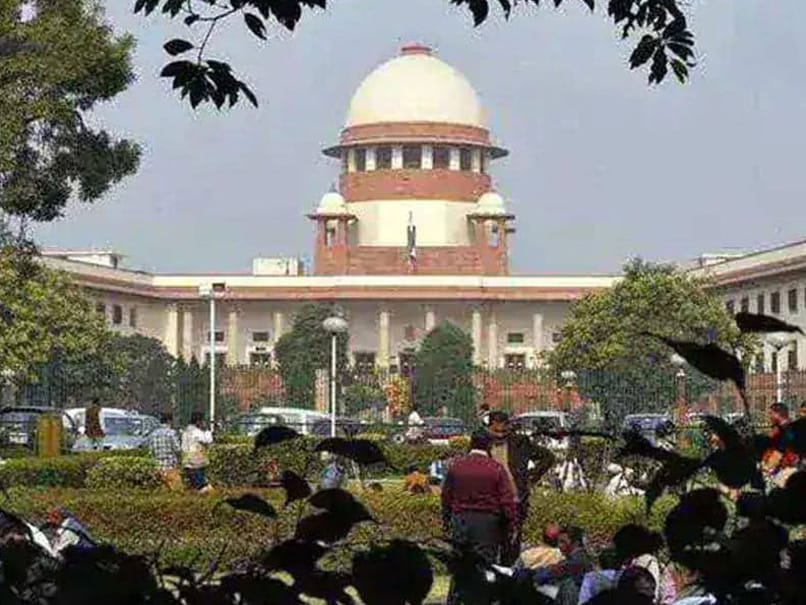The trial judge needed to have analysed why such an ex parte injunction was essential, top court said.
Courts should not grant ex-parte injunctions against publication of a news article barring in exceptional cases as it may have severe ramifications for the right to freedom of speech of the author and the public's right to know, the Supreme Court has said.
Setting aside a trial court's order directing international media group Bloomberg to take down an allegedly defamatory news article against Zee Entertainment, the top court said injunctions against the publication of material should be granted only after a full fledged trial.
"The grant of a pre-trial injunction against the publication of an article may have severe ramifications on the right to freedom of speech of the author and the public's right to know," a three-judge bench headed by Chief Justice D Y Chandrachud said.
The bench, also comprising Justices Justices J B Pardiwala and Manoj Misra, said an injunction, particularly ex-parte, should not be granted without establishing that the content sought to be restricted is "malicious" or "palpably false".
"Granting interim injunctions, before the trial commences, in a cavalier manner results in the stifling of public debate....In other words, courts should not grant ex-parte injunctions except in exceptional cases where the defence advanced by the respondent would undoubtedly fail at trial," the bench said. The SC said grant of an interim injunction, before the trial commences, often acts as a "death sentence" to the material sought to be published well before the allegations have been proven.
"While granting ad-interim injunctions in defamation suits, the potential of using prolonged litigation to prevent free speech and public participation must also be kept in mind by courts," it said.
The top court was hearing a plea filed by Bloomberg against the March 14 order of the Delhi High Court, which dismissed its appeal against the trail court order.
The apex court said the error committed by the trial judge had been perpetuated by the high court and the order of the trial judge does not discuss the prima facie strength of the plaintiff's case, nor does it deal with the balance of convenience or the irreparable hardship that is caused.
The trial judge needed to have analysed why such an ex parte injunction was essential, after setting out the factual basis and the contentions of the respondent made before the trial judge, it said.
This being a case of an injunction granted in defamation proceedings against a media platform, the impact of the injunction on the constitutionally protected right of free speech further warranted intervention, the bench added.
"The error committed by the trial judge had been perpetuated by the high court. Merely recording that a prima-facie case exists for a grant of injunction, the balance of convenience lies in Zee's favour and that an irreparable injury would be caused would not amount to application of mind in the case," the bench, also comprising Justices J B Pardiwala and Manoj Misra, said while granting liberty to Zee to approach the trial court afresh with its prayer seeking injunction.
The apex court clarified that the above segment of the judgment and order may not be construed as a comment on the merits of the present case and the purpose of the above segment is to provide the broad parameters to be kept in mind while hearing the application for an interim injunction.
Reacting on the apex court order, Bloomberg News spokesperson had said, "We are very encouraged by today's decision from the Supreme Court of India, and we continue to stand by this story." Justice Shalinder Kaur of the high court had said there was no ground to interfere with the ex-parte interim order passed by the Additional District Judge (ADJ) on the lawsuit by Zee Entertainment Enterprises Limited over the article published on February 21, and ordered Bloomberg to comply with the direction in three days.
On March 1, the ADJ had directed Bloomberg to take down the allegedly defamatory article within a week, saying Zee had established a "prima facie case for passing ad-interim ex-parte orders of injunction".
The ADJ had said the balance of convenience is in Zee's favour and irreparable loss and injury might be caused to the company if the injunction was not granted.
The appellant contended before the high court that the lawsuit was intended to intimidate and silence their right to free and fair speech.
It was also claimed that the ADJ did not give the portal an opportunity to place before it several other articles published prior in time and was denied a right to establish their case.
(Except for the headline, this story has not been edited by NDTV staff and is published from a syndicated feed.)






Leave a Reply